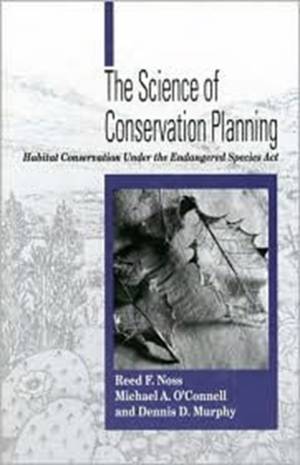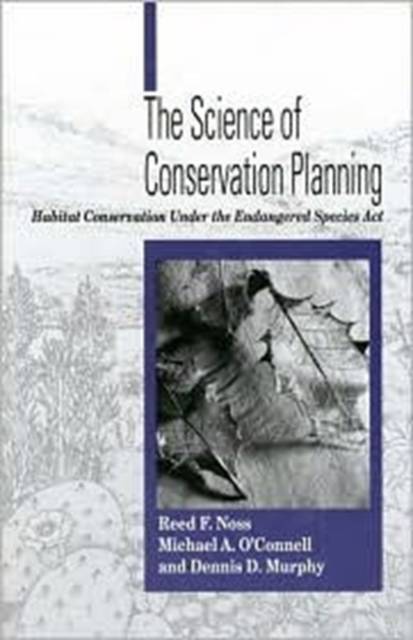
Bedankt voor het vertrouwen het afgelopen jaar! Om jou te bedanken bieden we GRATIS verzending (in België) aan op alles gedurende de hele maand januari.
- Afhalen na 1 uur in een winkel met voorraad
- In januari gratis thuislevering in België
- Ruim aanbod met 7 miljoen producten
Bedankt voor het vertrouwen het afgelopen jaar! Om jou te bedanken bieden we GRATIS verzending (in België) aan op alles gedurende de hele maand januari.
- Afhalen na 1 uur in een winkel met voorraad
- In januari gratis thuislevering in België
- Ruim aanbod met 7 miljoen producten
Zoeken
The Science of Conservation Planning
Habitat Conservation Under the Endangered Species ACT
Reed F Noss, Michael O'Connell, Dennis D Murphy
Hardcover | Engels
€ 53,45
+ 106 punten
Omschrijving
Broad-scale conservation of habitats is increasingly being recognized as a more effective means of protecting species and landscapes than single-species preservation efforts. While interest in the approach has grown tremendously in recent years, it remains controversial and the science behind it has yet to be fully developed.In The Science of Conservation Planning, three of the nation's leading conservation biologists explore the role of the scientist in the planning process and present a framework and guidelines for applying science to regional habitat-based conservation planning. Chapters consider: history and background of conservation planning efforts criticisms of science in conservation planning principles of conservation biology that apply to conservation planning detailed examination of conservation plans specific recommendations for all parties involved.The recommendations, interpretations, and questions provided are thoroughly based in the science of conservation biology, and the framework presented is adaptable to allow for revision and improvement as knowledge is gained and theories refined. The Science of Conservation Planning will serve as a model for the application of conservation biology to real-life problems, and can lead to the development of scientifically and politically sound plans that are likely to achieve their conservation goals, even in cases where biological and ecological information is limited.The book is essential for scientists at all levels, including agency biologists, academic scientists, environmental consultants, and scientists employed by industry and conservation groups. It is also a valuable resource for elected officials and their staffs, environmentalists, developers, students, and citizen activists involved with the complex and contentious arena of conservation planning.
Specificaties
Betrokkenen
- Auteur(s):
- Uitgeverij:
Inhoud
- Aantal bladzijden:
- 263
- Taal:
- Engels
Eigenschappen
- Productcode (EAN):
- 9781559635660
- Verschijningsdatum:
- 1/10/1997
- Uitvoering:
- Hardcover
- Formaat:
- Genaaid
- Afmetingen:
- 152 mm x 229 mm

Alleen bij Standaard Boekhandel
+ 106 punten op je klantenkaart van Standaard Boekhandel
Beoordelingen
We publiceren alleen reviews die voldoen aan de voorwaarden voor reviews. Bekijk onze voorwaarden voor reviews.









